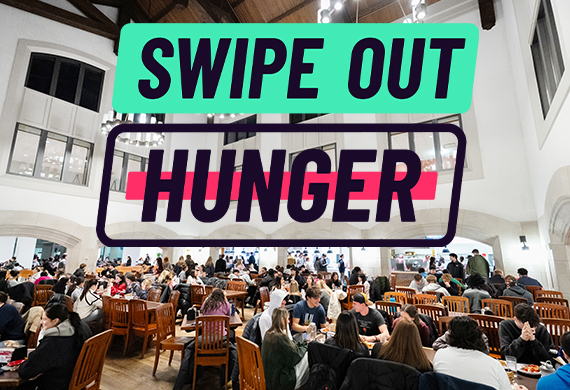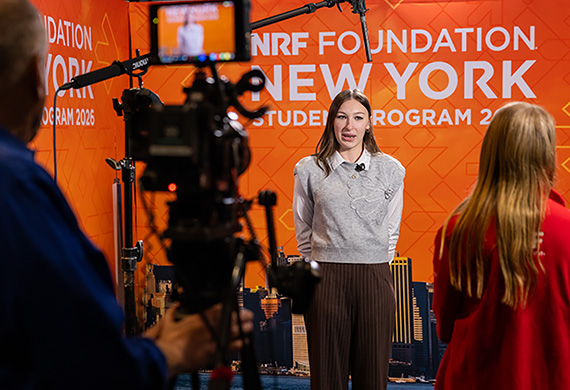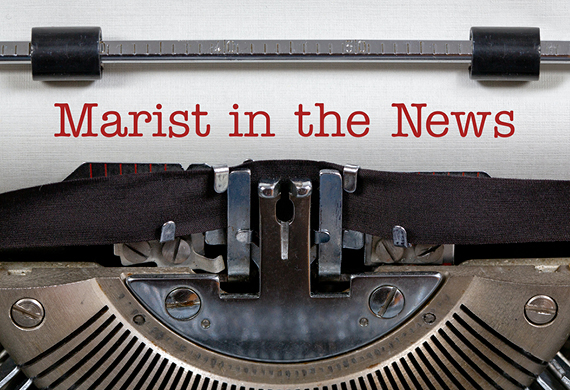Making the Best of It: Remote Internships, Flexible Program Saved Student Experiential Learning Opportunities

Despite the pandemic, many employers allowed internships to go remote this spring.
July 14, 2020—In early March, as it became clear that COVID-19 was spreading in New York City and elsewhere, the School of Communications Internship Director Gerald McNulty was growing concerned.
“We had 11 Marist in Manhattan Program interns residing in the city, and the Communication Department had an additional 25 who were commuting,” McNulty recalled. “There was a regularly scheduled Dinner Seminar meeting on March 11 with the in Marist Manhattan Program group. That night, every one of the nine students present said people at their internship sites were talking about the pandemic and worried about possible closures.” By the end of that week, only two students were still reporting to their offices.
Aside from the 36 interns in Manhattan, McNulty was also concerned about 32 other students in internships elsewhere, facing the same issues.
Immediately McNulty contacted the internship sponsors. “In some cases, the offices had just shut down operations. But most were trying to operate with skeleton crews. We took the position that if our students could continue to work remotely, we would support that because most students wanted to continue,” he said.
Shifting Gears
McNulty was thrilled when 29 of the interns were able to continue their work remotely. “The switch to remote work was not too difficult for many students. For those who were doing public relations/advertising writing and research, many of their tasks were easily handled online.”
“To say that going from commuting to Manhattan three times a week to working remotely was a big transition would be an understatement,” said Madison Zoey Vettorino ’20 (pictured on campus), who was a digital editorial intern at Food Network. “But my internship supervisor made a great effort to ensure that the entire team stayed informed with 15-minute check-in meetings that were usually held daily. The internship team itself at my company also worked tirelessly to ensure that the transition was seamless. I believe that throughout my transition from in-person to remote, my productivity stayed the same.”
Benjamin Skyer ’20 (pictured below), an intern at The Shark Group, a marketing consulting and branding firm, realized the transition wasn’t as disruptive as he believed. “I thought it would be extremely difficult to navigate a remote internship, but I came to realize that much of what I was doing was already online so it allowed me to easily transition to working from home.”
Savannah Klein ‘20 had a similar experience at “The Dr. Oz Show” as a public relations intern. “Working remotely was not much different than working in the office. Our team members were always working on our own laptops at all times, logged on to the same Microsoft Outlook drive,” Klein explained. “Through text message, email, and instant message, I stayed in touch with my colleagues and supervisor. We had group chats on our cell phones, where we constantly spoke. All the work we do is team work, so constant communication is what helped us succeed to get the job done.”
In cases where internships could not be completed remotely, McNulty made alternative arrangements. “Our program is quite flexible, so some students had actually already completed their minimum hours in March. For those who had more hours to put in we devised two substitute assignments,” said McNulty. The first one was called "Career Portfolio” and required the students to produce an updated resume, sample cover letter, record a video elevator speech, and draft a target list of potential employers. “I also scheduled a personal review of these materials so that each student got a face-to-face meeting to discuss their career preparedness and goals,” McNulty noted. “This was particularly important for the graduating seniors.”
The second assignment option was a research paper topic on a field closely associated with their career path. “That way, they would have a substantial academic assignment to complete. This would allow to award them the full complement of their internship credits while also allowing them to stay focused on their career tracks,” he said.
McNulty knew all the students would also benefit from a sense of shared experience. To mitigate this, he created an online discussion board. “There the students could share their strategies and complaints, commiserate a bit and not feel so alone. Many of them shared excellent tips to help others make the transition to remote work. That was definitely a success.”
Vettorino appreciated the extra efforts. “The communications internship program at Marist played a great role in making sure we were doing okay with the transition. Checking in with us was extremely helpful and made me feel very cared for especially during this chaotic time.”
“I Learned So Much”
As with any difficult situation, there were positives. “Though a remote internship experience wasn't what I expected, I do feel that I learned so much from working remotely including essential time management skills,” Vettorino said. “Versatility is something I believe employers look for in a candidate, and I do think that going from in-person to remote helped equip me with a sense of versatility that will prove beneficial in the future.”
Savannah Klein at Marist
“Two things I learned working remotely are that key skills to have for one to be able to succeed are communication and reliability,” said Klein.
McNulty believes all the students involved had significant learning experiences from these circumstances. “I think they gained a sense of how important it is to be flexible, to be a bit humble, and see where you fit into the bigger scheme of things. The company supervisors were grateful that our students were able to contribute in a time when they were needed most.”



